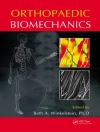Psychodynamic Psychotherapy Research: Evidence-Based Practice and Practice-Based Evidence continues the important work of the first book published in 2009 by Humana Press (Handbook of Evidence-Based Psychodynamic Psychotherapy: Bridging the Gap Between Science and Practice). This landmark title presents in one volume significant developments in research, including neuroscience research, in psychodynamic psychotherapy by a team of renowned clinician-researchers. The demand for ongoing research initiatives in psychodynamic psychotherapy from both internal and external sources has increased markedly in recent years, and this volume continues to demonstrate the efficacy and effectiveness of a psychodynamic approach to psychotherapeutic interventions in the treatment of psychological problems. The work in this volume is presented in the spirit of ongoing discussion between researchers and clinicians about the value of specific approaches to specific patients with specific psychiatric and psychological problems. Multiple forms of treatment interventions have been developed over the past fifty years, and this volume makes clear, with firm evidence, the authors’ support for the current emphasis on personalized medicine. Groundbreaking and a major contribution to the psychiatric and psychologic literature, Psychodynamic Psychotherapy Research: Evidence-Based Practice and Practice-Based Evidence provides firm grounding for advancing psychodynamic psychotherapy as a treatment paradigm.
Tabla de materias
-The Efficacy of Psychodynamic Psychotherapy.- Effectiveness of Long-Term Psychodynamic Psychotherapy: First Meta-Analytic Evidence and Its Discussion.- Must All Have Prizes? The Munich Psychotherapy Study.- The Helsinki Psychotherapy Study: Effectiveness, Sufficiency, and Suitability of Short- and Long-Term Psychotherapy.- Psychoanalytic and Psychodynamic Therapies for Depression: The Evidence Base.- Evidence-Based Psychodynamic Treatments for Anxiety Disorders: A Review.- An Update and Overview of the Empirical Evidence for Transference Focused Psychotherapy and Other Psychotherapies for Borderline Personality Disorder.- What Happens After Treatment: Can Structural Change be a Predictor of Long-Term Outcome?.- Neural Models of Psychodynamic Concepts and Treatments: Implications for Psychodynamic Psychotherapy.- Toward Molecular Psychotherapy of Depression?.- Psychotherapy Increases the Amount of Serotonin Receptors in the Brains of.- Neural Correlates of Emotion, Cognition, and Attachment in Borderline Personality Disorders and its Clinical Implications.- Neurobiologically Informed Psychotherapy of Borderline Personality Disorder.- Foundations of Psychodynamic Therapy: Implicit Emotional Learning.- Neurobiological Correlates of the Psychotherapy Relationship and E.M.P.A.T.H.Y.: The Role of Biomarkers in Psychotherapy.- Bridging Technology and Psychotherapy: Towards Investigating Psychological and Neural Correlates of Psychodynamic Psychotherapy.- The Neurobiological Foundations of Psychotherapy.- Process and Outcome in Psychoanalytic Psychotherapy Research: The Need for a (Relatively) New Paradigm.- How to Make Practical Use of Therapeutic Alliance Research in Your Clinical Work.- The Contributions of the Psychotherapy Process Q-set to Psychotherapy Research.- Attachment Theory and Research: Implications for Psychodynamic Psychotherapy.- Accuracy of Defense Interpretation in Three Character Types.- When is Transference Work Useful in Psychodynamic Psychotherapy? A Review of Empirical Research.- Single Case Research: The German Specimen Case Amalia X.- Combining Idiographic and Nomothetic Approaches to Single Case Research.- A Session of Psychoanalysis as Analyzed by the Psychotherapy Process Q-set: Amalia X, Session 152.- Ten Diverse Outcome Measures for Psychodynamic Psychotherapy Research.- Empirically-Informed Clinical Interviewing for Personality Disorders.- The Structured Interview of Personality Organization (STIPO): An Instrument to Assess Severity and Change of Personality Pathology.












